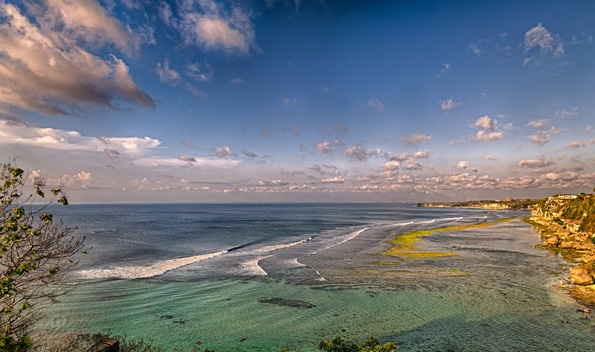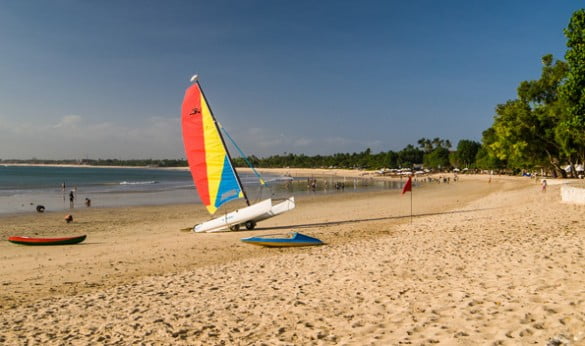Real Estate agents around Indonesia, and internationally, think that land laws in Bali are different from the rest of Indonesia, as foreigners can own freehold land! You can also own freehold land with a secondary title on top of it, being the Right of Use (Hak Pakai) and Right to Build (Hak Guna Bangunan). Some agents also state that recently there have been “changes in Indonesian land laws” that allows the nominee structure to be used for foreigners, heavily and rightfully contradicted by Discovery newsletter.
Look at the case of Susi Johnston for a sad set up, but the core issue here is that a nominee agreement went bad. Her case may very well set precedence for Indonesian law on this matter. There are currently 140 cases in court, or police reports involving nominee structures – about 7,000 or more properties in Bali are currently held under this structure.
All not true; Bali is very much part of Indonesia and its legal system, end of story. Try to go to a Notary or Lawyer in Jakarta and tell them you want to purchase a freehold property in Pondok Indah using a nominee to secure a freehold. They might be able to set up a foreign owned company (PT PMA) to secure Right of Use (Hak Pakai) or Right to Build (Hak Guna Bangunan) to own a property as a shareholder of such company.
However, the truth is that the Indonesian Agrarian law states: “Any attempt by a foreigner or a foreign entity to secure freehold land in any shape or form is void and the property belongs to the government”.
The truth is that there is no need to circumvent the Indonesian law, just the mad perception out there in the property Industry in Bali. There are basically three options of ownership structures available for foreigners under Indonesian Law.
1. Hak Pakai or Right of Use. This is a residential title for Indonesians and foreigners. It is classified as a residential title and there are guidelines around the number of units and size of land as well as qualifications of being “residential” in Indonesia, with some economical benefit towards the Indonesian economy.
2. Hak Guna Bangunan or Right to Build. This is a commercial title for villas or resort developments. There is no discrimination between an Indonesian company and a foreign-owned company on this land title, and a foreign-owned company can be 100% foreign owned.
Both these titles come with an extension/renewal option after 25 and 30 years. This extension/renewal does not mean you buy the land again as it is your land, though there is a 0.2% payable tax based on the tax appraisal value of the land in that current time. Actually, the Indonesian law now has special benefits for foreigners and foreign investment, allowing for an automatic extension/renewal where all that is needed at the end of the first term is to go to the Indonesian land Office, BPN, and have the new certificate for the second period issued.
Some people question the strength of these two land ownership structures. However, even towards the end of the title’s terms, one can freely sell the property to an Indonesian and get a freehold title again. Specifically to Right to build, during a transaction of the property one could also apply for a new 30 year term for the new owner.
3. The third option for foreigners is a straight forward lease of land and/or property. 25 – 30 years is a normal length of lease and this will not challenge the existing structure of the above mentioned foreign titles available. Some legal advisors would state that you can do longer leases as there are no arguments against that under Indonesian law. Others would argue and structure 2-3 agreements of 30 years each in order not to circumvent the spirit of the above mentioned titles. If one does not do this, one could choose to state that an extension after 25-30 years would be at that time market value, which is decided by the lease holder and lessor, as well as two to three independent appraisers.
Solutions to the ongoing discussions around Indonesian Agrarian laws are to possibly extend the Right of Use (Hak Pakai) title to 70 years, and Right to Build (Hak Guna Bangunan) to 85 years in one go with no need to formally renew/extend the certificates. This has actually happened already a few times, the first time in 2007, but the changes were rejected by the Constitutional Court. Whether it will pass this time or not remains to be seen.
All in all, the existing Laws and regulations are, from a security perception, already sufficient for investors, and it’s more about educating the market on the misperceptions around these titles as well as the risks in utilizing a nominee, as shown in several recent cases.
The main thing for any purchaser or investor to consider is the purpose and how they want to utilize the property, as well as their final exit plan, if any. One can also consider using an offshore holding company to further protect oneself as an exposed owner of land and assets, and this structure may also have some tax benefits at an eventual exit and sale of the property.
The central government, as well as provincial governments, are very well aware of the arising issues and are constantly considering regulations to discipline this. The sooner the better, it’s not complicated, nor difficult. Without the right advice it’s a jungle out there.





